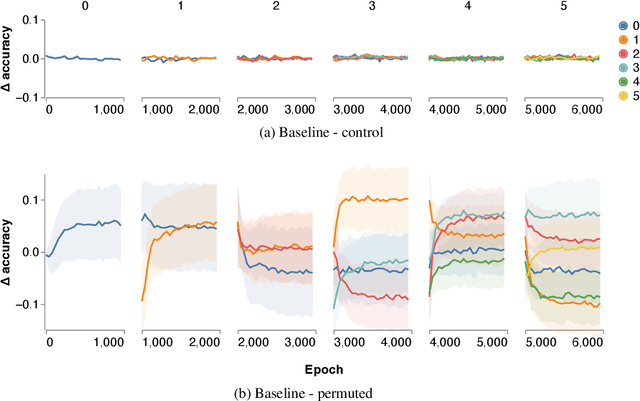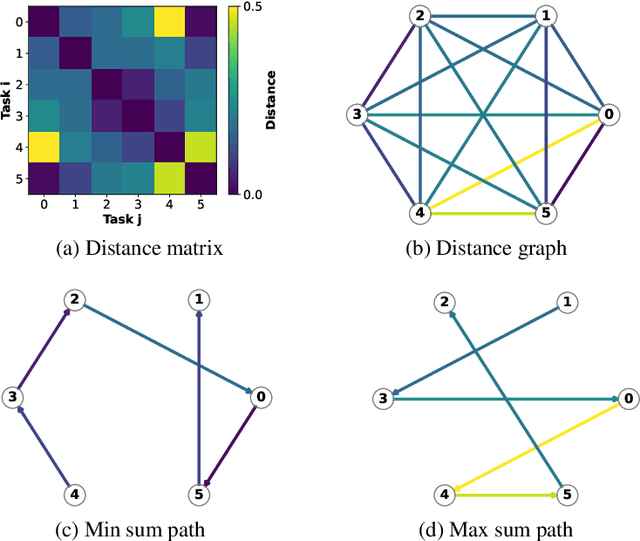The Effect of Task Ordering in Continual Learning
Paper and Code
May 26, 2022



We investigate the effect of task ordering on continual learning performance. We conduct an extensive series of empirical experiments on synthetic and naturalistic datasets and show that reordering tasks significantly affects the amount of catastrophic forgetting. Connecting to the field of curriculum learning, we show that the effect of task ordering can be exploited to modify continual learning performance, and present a simple approach for doing so. Our method computes the distance between all pairs of tasks, where distance is defined as the source task curvature of a gradient step toward the target task. Using statistically rigorous methods and sound experimental design, we show that task ordering is an important aspect of continual learning that can be modified for improved performance.
 Add to Chrome
Add to Chrome Add to Firefox
Add to Firefox Add to Edge
Add to Edge